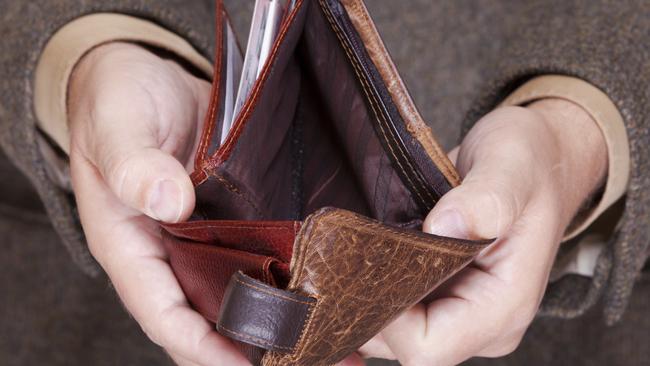Most workers will have an ‘earnings shock’ and many will take years to recover
Most Australian workers will experience a major ‘earnings shock’ during their life, and fewer than half will return to their pre-shock earnings within five years, a new report finds.

Six in 10 male workers and nearly 80 per cent of female workers in Australia will experience at least one major “earnings shock” where their income falls by more than 40 per cent, and fewer than half return to pre-shock earnings within five years.
New research finds women are more likely to undergo an earnings shock than men, and were slower to recover, though the gap has fallen in recent years.
Based on an analysis of 26 years of tax data, the Melbourne Institute report finds higher income males are less likely to experience an income shock than lower earners, but will likely take longer to recover.
“(Overall) only 50 per cent of male tax filers return to pre-shock earnings within five years,” the report, published on the International Day for the Eradication of Poverty during Anti-Poverty Week, says.
Recovery has been slower for males in recent years than during the mining boom years of the early 2000s, it finds. For females, higher earners are more likely to have a sudden loss of earnings.
Women across all income brackets take longer to recover.
The peak age at which people experience earnings shocks for both genders is 30-34, the study reports. It notes that earnings shocks and unemployment is highly correlated for males but less so for females, where family composition is more relevant and voluntary reduction of income is more likely to come into play.
The findings show the risk of ending up in poverty or extreme financial disadvantage runs deeper than simply whether someone is unemployed or not. “Regardless of whether a sharp decrease in earnings is for voluntary or involuntary reasons, it increases the risk of not being able to pay bills and other expenses, which can lead to a decline in economic and social wellbeing.
“While macroeconomic measures … are critical for understanding economic health of a country or state, we should be using more finely tuned measures to better understand the best mechanisms for supporting individual and family-level wellbeing.”
Melbourne Institute director and report co-author Abigail Payne said the study was a starting point to try to understand the disconnect between why so many Australians were currently reporting high levels of financial stress in an environment of low unemployment.
“Preventing spells of economic disadvantage is more nuanced than we may want to think,” Professor Payne said. “We should not think about one size fits all solutions but pursue an understanding of these nuances for particular subgroups, such as females with young families.”

A separate Melbourne Institute report finds low income earners are more sensitive to economic booms and busts than wealthier Australians. Institute deputy director Roger Wilkins said the second report, part of a series entitled Breaking Down Barriers, shows low income earners are “greatly affected by macroeconomic policies.”
While they benefit more from policies that address unemployment, they are also affected more by economic mismanagement and at greater risk of experiencing poverty,” Professor Wilkins said. “It is important to implement policies that provide support to females with young children to help them maintain income levels and working hours, such as childcare subsidies.”
Anti-Poverty Week executive director Toni Wren said the data shows low income earners were three times more likely to have an earnings shock than higher earners, and policy should be built around that information.






